At some point, we have all delved into the fantasy genre, whether that is through books, TV shows or movies. It’s a genre with a wealth of scope, opportunities and precedents. So much so that beginning a fantasy script can seem like a gargantuan task involving world-building, unique character work and vast imagination overall.
Typically, the fantasy genre is associated with dragons, wizards and quests to fight evil. Though this does relate to the fantasy genre, there is so much more to it than this stereotypical representation.
The fantasy genre is one of the most fun but also the most difficult genres to bring to life. From creating characters and worlds to creating convincing stories, it requires a great deal of thought, research and planning. However, the fantasy genre doesn’t need to be overwhelming.
Here, in this guide, we will provide you with seven key ways into the fantasy genre so that you can start the ball rolling on your fantasy script.
Table of Contents
- What is the Fantasy Genre?
- The Key Fantasy Sub-Genres
- 1. Understanding the Fantasy Genre and Turning Your Idea into a Story
- 2. Creating Characters
- 3. Look at Common Fantasy Genre Tropes
- 4. Avoid the Cliches and Subvert the Genre
- 5. World-building in the Fantasy Genre
- 6. Believability and Realism in the Fantasy Genre
- 7. Consider Your Time Span
- In Conclusion: Take Your Time
- In Summary: How Do You Start Writing a Fantasy Script?
What is the Fantasy Genre?
How exactly do we define the fantasy genre?
“A genre of imaginative fiction involving magic and adventure, especially in a setting other than the real world.”
Oxford Dictionary of English
Now there isn’t one definitive definition that perfectly describes the fantasy genre, though the above one does come close. The reason for this is the fantasy genre is split into numerous sub-genres, which make it quite hard to classify what the definition of fantasy truly is.
It is key to understand what fantasy sub-genre you want to go into before you start your fantasy script.
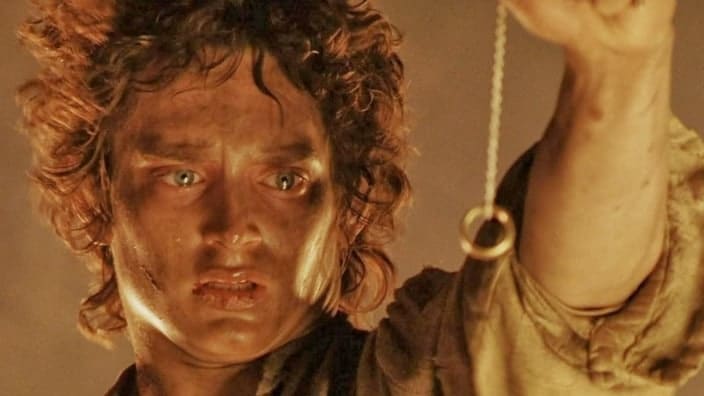
The Key Fantasy Sub-Genres
Fantasy can be split into many different sub-genres. The below list isn’t a comprehensive list of all the fantasy sub-genres in existence. However, these are the most popular and frequently occurrent sub-genres.
High/Epic Fantasy
- A story that is set in a magical world that is different from our own. For example, Lord of the Rings is based in another world known as Middle Earth.
- Or take Game of Thrones, for example, which creates an entire world, history and set of rules.
Low Fantasy
- This is where the story is set in the real world but has the addition of magical elements. A good example of this is Pan’s Labyrinth.
Portal Fantasy
- This is where a character is transported to another world through the use of magic.
- For example, in Alice and Wonderland, Alice goes down the rabbit hole, eventually leading her to Wonderland.
Fairytale Retelling
- This is a fantasy sub-genre that includes attributes of well-known fairytales.
- A great example of this is Shrek, which enforces many common fairy tale tropes in its narrative, primarily in order to create comedy.
- In a similar way, Disney’s Into the Woods also incorporates a number of fairytales within its narrative.
Science-Fiction Fantasy
- This is a sub-genre of fantasy that mixes science-fiction and fantasy.
- A prominent example of this would be the Star Wars franchise.
Dark Fantasy
- This is where elements of horror are mixed into the fantasy genre.
- Some good examples of dark fantasy movies include Coraline and Crimson Peak.
So you’ve familiarized yourself with some of the fantasy sub-genres. Maybe you’ve picked a sub-genre for your script. But how do you get started writing a fantasy script?
1. Understanding the Fantasy Genre and Turning Your Idea into a Story
1. Brainstorm
The number one step before starting your script is to brainstorm some foundational ideas. Here are a few essential questions to consider when crafting your story:
- What type of fantasy sub-genre do you want your story to come under?
- Who is your protagonist?
- Who is your antagonist?
- What type of conflicts do you want your protagonist to face?
- What type of themes and messages do you want to convey?
2. Research the Fantasy Genre
Although sometimes exhaustive, when navigating the fantasy genre, research is your best friend.
Start by looking into different areas of literature. Whether it’s novels, short stories, film or TV, each will lend you a hand in getting you one step closer to writing the core elements of your fantasy script.
While looking at these texts, ask yourself the following questions:
- How have these writers enforced the fantasy genre into their stories?
- What was successful or unsuccessful about this?
- What themes did the writers explore?
- Why were the characters compelling?
In a similar way, look at how these texts are structured.
- How do they convincingly tell a story within this niche genre?
- Is the story chronological or non-linear?
- How do they reveal information to add drama to the story?
3. Add in Originality/Your Twist
Don’t just copy other fantasy texts! This is obviously extremely important. Instead, what will your twist on the genre be?
The fantasy genre is vast and consequently one that is easy to get lost in. So many movies, TV shows and books are filled with the same kind of story. In order to make your story stand out, you need a sense of originality.
But how do you achieve this originality?
- Genre hybrids are a great way to do this, mixing together different genres and styles into one.
- Having a comedic or particularly charismatic character always does well to make your narrative stand out.
- Alternatively, you might twist the story. For example, instead of the hero being the protagonist, you could have the villain as the protagonist.
- Subverting your audiences’ expectations will bring out originality in a fantasy script.
A great example of this comes in Shrek.
- Shrek is a typical fantasy tale where the hero saves the princess…
- However, what makes Shrek unique is that it steers away from the conventional knight in shining armour.
- Instead, we have a not-so-handsome hero that doesn’t want to save the princess.
- The real prince is arrogant and unlikeable and the steed is well… a donkey.
Through this subversion and play on many typical fairytale tropes, Shrek stands out, fulfilling fantasy genre elements whilst also subverting them.
2. Creating Characters
Compelling characters are essential in creating a great fantasy script, just as they are in any other script. Spend some time drafting out all potential characters in this world. You may decide later on to keep or rid your script of certain characters.

It is important to only keep characters that are necessary.
- How will the character aid in moving your story forward?
- Do they have a specific role?
Stories are far more convincing and relatable when the character has flaws. These flaws cause conflict in the narrative and ultimately drive the story and the protagonist’s ability to reach their goals.
Spend some time considering what your character’s flaws could be:
- Do they have specific fears?
- Did they have a traumatic childhood or adolescence?
- Do they have particularly negative characteristics or impulses?
- What is their relationship with the fantasy element of the story?
Narrative Point-of-View
Traditionally, the POV is usually from the hero’s perspective. However, this doesn’t mean your fantasy script has to follow the same structure. Instead, why not subvert the traditional.
- For example, you could choose to tell your story from the POV of the villain like Disney’s Maleficent does.
- Alternatively, the narrative POV could be from a supporting character or someone who was in the wrong place at the wrong time.
- Moreover, you might decide to use a close first-person narrative, which can play to your advantage. For example, you could make your character unreliable which ultimately will affect the story’s progression.
- Alternatively, you might decide to use a third-person narrative which means your audience will discover things before your characters. This is a great way to add tension to your script.
Whatever conflicts and flaws you choose, show how your character overcomes them. This will allow the story to develop.
The Perfect Fantasy Villain
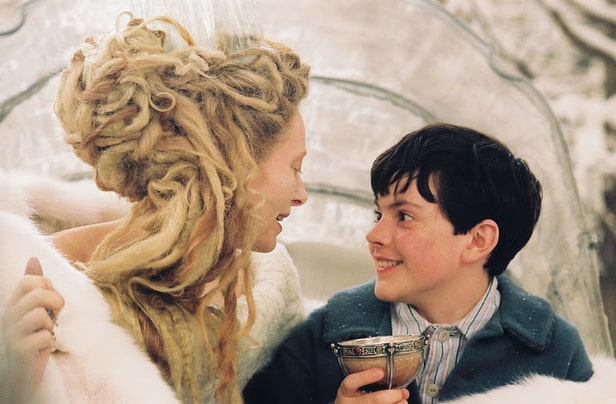
Having a perfect villain is necessary for any great story and specifically for any great fantasy tale.
- Star Wars has Darth Vader
- In Lord of the Rings, there is Sauron
- Whilst The Chronicles of Narnia has the White Witch.
Spending a good amount of time on your villain is important in creating a successful fantasy script. So, how do you create the perfect fantasy villain?
A Great Villain’s Backstory
- Have your readers question why the villain has become who they are. They could be a character who is simply broken or a character who is simply un-empathetic and likes creating chaos.
- Make your villain somewhat likeable. Then contrast this with their unlikeable actions.
- Another great way to add depth is to demonstrate flaws in your villain just like you would the protagonist.
- Your villain should be as well-rounded as your protagonist, otherwise, the threat they pose will not feel truly believable.
What Does Your Villain Want?
- Give your readers insight into what your villain truly wants.
- Do they want revenge?
- Do they want power?
Either way, lay out your villain‘s goals early on into the script, in order to demonstrate why your protagonist and villain will clash later on in the story.
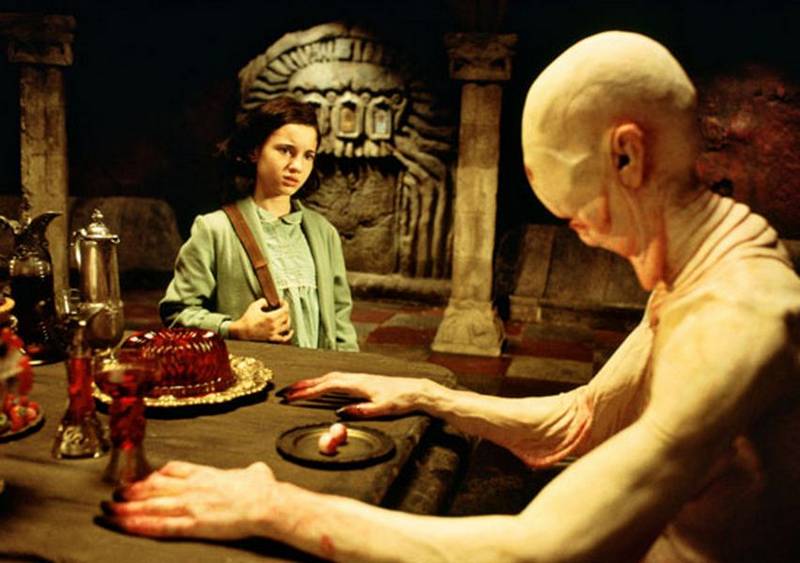
3. Look at Common Fantasy Genre Tropes
In order to fit your script into the fantasy genre, you need to include some fantasy tropes. Even if you are going to ultimately subvert these tropes, it’s important to know what they are.
Good v.s. Evil
A great example of good vs. evil comes in Lord of the Rings.
- The ring represents power and both good and evil sides fight over it.
- This simple fantasy trope is made more complex in how susceptible the good side is to the evil forces the ring unleashes.
The fight between good and evil doesn’t have to be simply about pitting good characters against bad ones. Instead, it can also be about good characters fighting the forces of evil, which threaten even to take over themselves.
Medieval Setting

The medieval setting is present in a number of high fantasy movies and TV shows. For example, it’s present in Lord of the Rings, Eragon and Game of Thrones.
However, one TV series that perfectly captures the stereotypical medieval setting is The Witcher.
- For one, the outfits and locations of the characters fit into the medieval setting.
- Specifically, to further delve into this trope, the show incorporates taverns, knights, castles, dungeons and best of all, a bard (Jaskier).
- Through playing around with the medieval setting, the writers of The Witcher have been able to explore different areas of the fantasy genre, as well as other genres.
- For example, the use of the bard works to enforce comedy. Meanwhile, the knights are used as enemies, subverting the audience’s expectation of the knights automatically being the heroes.
The Quest
The quest is essential for all fantasy genres. It helps in shaping the narrative and developing each character’s arc.
- For example, in Lord of the Rings, the quest is to destroy the ring.
- Whereas, in Onward the quest is to bring Ian and Ian’s dad to life.
Though the quest may change, or be interrupted, it is almost essential for your fantasy script. That being said, the quest doesn’t always have to be that simple. It can change and morph as the story goes on. For example, your character may go on a quest to save someone, but end up on another quest entirely.
The quest is as much about the protagonist‘s quest into understanding themselves and achieving something as much as it is about a literal quest to find something or someone, for example.
4. Avoid the Cliches and Subvert the Genre
Though it is good to include and riff on fantasy tropes, it is also important not to be too cliche! So how do you avoid relying on these cliches?
Work On Your Characters
- Avoid having a typical ‘chosen one’ character or the perfect ‘knight in shining armour’. Instead, play on these fantasy tropes to create something unique and less cliched.
- For example, instead of having the perfect ‘knight in shining armour’ or ‘chosen one’, show each character’s flaws.
- Perhaps play on the scenario of the wrong person being in the wrong place at the right time. For example, a character thrust into an unexpected circumstance and forced to try and survive.
Blur the Boundaries

Instead of having a scenario that is black and white in terms of who is good and who is evil, try and complicate the boundaries. This way you will successfully subvert your reader’s expectations.
Game of Thrones is full of great examples of this.
- None of the characters are perfect, and all of them are extremely flawed.
- Yes, some are more flawed than others, but this makes it harder to determine who should be liked and who should be hated.
- Similarly, as your characters’ arcs progress, you can change their dynamic.
- For example, at the start of Game of Thrones, Jaime Lannister is very unlikeable. However, towards the end of the series, he is a lot more likeable and leans towards the good side of the good vs. evil spectrum.
- We’ve learned more about Jamie and therefore like him more. However, he has also been changed by what he’s been through, which we have also been through alongside him. This creates an intimacy and empathy that makes it hard not to attach to Jamie.
Play Around With Your Setting
It is very typical to go into the medieval setting when writing a fantasy story. However, through looking at the sub-genres above, we can see that doesn’t have to be the case. In order to avoid creating a cliched fantasy narrative through setting, interrogate where you story can best take place.
For example, Pan’s Labyrinth is set in 1944.
- In doing so Guillermo del Toro creates a fantasy world of mythical creatures whilst being set in a very tangible and realistic war setting, again subverting expectations of what the story would be about.
- This helps to add realism and believability to the story.
- Consequently, the fantasy feels all the more convincing because of the real world it is set in, tapping into a metaphorical resonance that ultimately gives the story a lot of depth.
But where do you start with creating an authentic fantasy world?
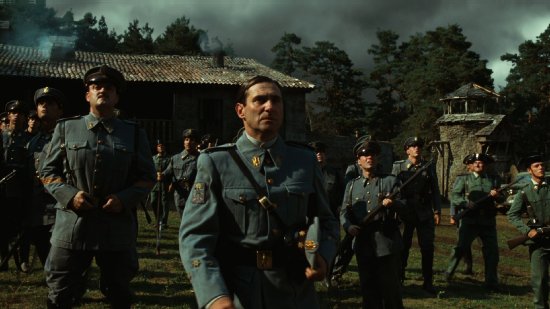
5. World-building in the Fantasy Genre
World-building is a key area to consider when crafting your fantasy script. You need to know the rules of the world your characters are in and be consistently asking yourself:
- How will this setting help or limit my character in achieving their goals?
- How will it shape the story, its tone and the overall themes?
This is, of course, true in any genre. But world-building is a particularly important part of the fantasy genre due to the twist on the real world that a fantasy script is likely to bring.
So, how do you start building a convincing fantasy world?
Research
Again research is an essential tool in creating a great fantasy script. This is specifically true when it comes to world-building.
- Spend a good amount of time looking at how different writers have developed worlds and what makes them successful.
- Similarly, it is always a good idea to look at examples where writers haven’t been as successful in building their world.
- In doing so, you can learn how to ensure your world will be successful without falling into any traps that past writers might have.
Establish the Type of World
- There are so many types of worlds, so spend some time exploring what type of fantasy world you want.
- For example, do you want your world to be post-apocalyptic, futuristic, outer-space or medieval?
Importantly, what effect does the type of world have on your story? And is the type of world crucial to your story, or could it take place in another world?
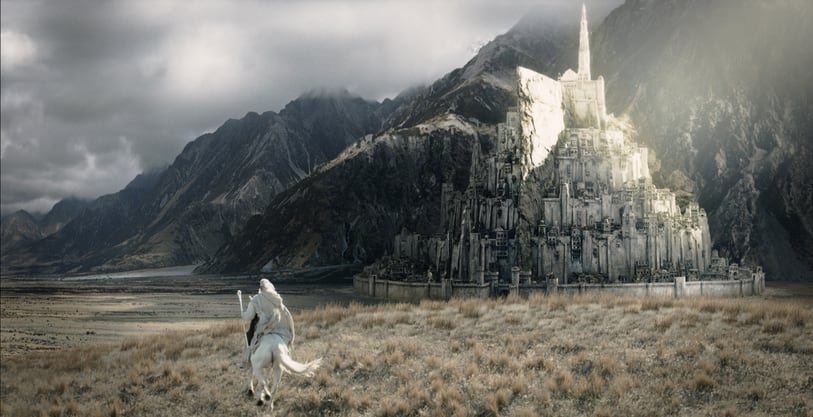
What is the Environment Like?
Take some time to establish what the landscape of your world is. In establishing the environment, you can then decide how it will shape your character’s journey.
- For example, there might be storms or specific environments that interrupt your character’s journey.
- Or certain environments can have different resonances from others.
If we look at Game of Thrones, we can see how the North and the South have numerous implications.
- The North is isolated and cold, with a wall crucially separating the characters from a mysterious beyond.
- The South is where most of the world’s sprawling cities and population lie and consequently where the majority of the power lies.
Learn the Rules of the World
Now, this part requires a lot of thinking. You need to know what your world is made up of and what limits it has.
- For example:
- Who is in charge of this world?
- What are the governmental laws?
- What is the social hierarchy like and what does this mean for each class?
- Is there magic and what are the rules regarding it like?
- What types of religions does your world have and how will this affect your characters?
- Do people speak a specific language from one another and might it cause tension in the narrative, for example?
How to Add World-Building Elements Into Your Script?
So you might have drawn up a detailed summary of your world. But how do you build your world within your actual fantasy script?
- For one, keep your descriptions short. Excessive amounts of long world-building descriptions can easily bore your readers. Therefore, it is important to keep your descriptions nice and quick.
- Furthermore, turn towards your senses. Instead of outlining each and every feature, you can capture your world simply through your own senses. This will allow your script to flow smoothly, without any excessive descriptions.
- Equally, balance your description with dialogue. Conversations between characters can aid in creating the world and its atmosphere.
Try not to get bogged down in the details of conveying your world. The pulse of the story should always be the element of the script that leads the reader. All else will follow.
Trust your audience to get into your fantasy world through the story, rather than feeling you have to lay out long and detailed exposition about the details of your world.
Lead first and explain later. Don’t explain and expect your audience to follow, as without significant engagement they will struggle to follow regardless of how much your world seems to make sense.
6. Believability and Realism in the Fantasy Genre
The fantasy genre is easy to get lost in with its escapist ideals and fairytale stories. As great as that is, it can sometimes mean that a story lacks authenticity and becomes somewhat detached from reality in an unconvincing way. To put it another simpler way, it becomes silly.
There must be a certain level of grounding to the fantasy. So, how do you create realism in the fantasy genre?
Create Character Flaws
- Acknowledging flaws in each of your characters is extremely important. For one it helps to ensure that the story will progress.
- However, it is also extremely helpful with adding realism. Nothing, in reality, is perfect, people and systems are imperfect.
- Therefore, if you add small examples of imperfection it will allow your audience to envision the world and see it as being believable.
Spend Time World-Building
- The longer you spend on creating a believable world, the better it will help in shaping your narrative.
- If everything in the world makes sense from rules to culture to the environment, then it will allow your story to become more realistic.
- One way you can do this is by using our world as a template for your story’s world.
- There might be familiar structures and rules shared by the real world but everything in your story’s world is a heightened version of this, for example.
7. Consider Your Time Span
Lastly, an important question you need to ask yourself is how long do you want your story to be? There are many fantasy stories that range in length.
Many popular fantasy stories have originated from books, such as Lord of the Rings, Game of Thrones or The Chronicles of Narnia. Their epic tales have been distilled in different ways over different formats, to varying degrees of success.
So, stand-alone, trilogy, franchise or TV show? What best suits your story? And how can you structure your story accordingly?
Stand-Alone
- A stand-alone movie is great if you want to explore your story and its themes in a limited amount of time.
- For example, Pan’s Labyrinth perfectly explores the fantasy genre and grand themes whilst being within a time span of only 1 hour and 58 minutes.
- However, if you want to create a more in-depth narrative, a stand-alone may limit you in what you can explore.
Trilogy
One of the most famous fantasy trilogies is Lord of the Rings. Peter Jackson perfectly adapted Tolkien’s books into three long, but successful movies that tied together the fantasy tale well.
- Trilogies are great for exploring one storyline that one feature film isn’t enough for.
- A TV series will explore multiple storylines, whereas a trilogy will stick to one storyline, albeit over a longer period of time than a single film.
TV Series
A TV series will allow you as a writer to truly go into detail regarding your story, characters and world. A good example of where a show was more successful than the original movie is His Dark Materials.
- For example, the 2007 movie, The Golden Compass was highly criticised due to its underdeveloped characters and lack of detail and loyalty to the books.
- In contrast, the 2019 TV show adaptation more successfully won the audience over. This is arguably due to its ability to follow the books closely due to having a larger time span to explore each area in depth.
Franchise
Franchises allow you to create multiple stories within the same world or universe you have created.
- A good example of this is Star Wars. There are multiple stories whether they are in the shape of stand-alone movies, trilogies or series.
- The advantage of creating a franchise is that it allows you to continually add new stories to your world, and explore different areas.
- It is also a great way to keep your audience hooked due to the growing attachment created with your characters and plots.
Obviously creating a franchise isn’t a simple feat. However, the basis of one starts from a range of engaging characters, a detailed story world and an ambition in the storytelling. Start with these key ingredients and who knows how many different stories could eventually branch off the original.
Depending on which route you decide to go down, use your decision to help create a successful story.
- For example, if you choose to go with a stand-alone prioritise what you need in your narrative in order to tell your story.
- Alternatively, if you decide to create a TV series, consider early on what could happen in the following seasons and if it will work with the initial storyline.
In Conclusion: Take Your Time
Writing a fantasy script can seem like a daunting task, such is the vastness of the fantasy genre. Whilst the building blocks of a fantasy script are similar to building any other script, there’s a number of key areas to focus on in order to create a convincing and engaging fantasy world and story.
Start simple and embrace complexity the deeper you get into preparing your fantasy script. Let your characters and unique world sit in your brain and don’t skimp on the development process and stages of your fantasy script.
This is the fundamental ingredient to any rich and rewarding fantasy story, a depth that will only come from time, patience and interrogation. The more you know your fantasy idea, story and world, the more audiences will find within it.
Think of the vast worlds of Game of Thrones and Star Wars that fans pour over. This depth and engagement didn’t come from a quick jumpstart on a script, it came from research, knowledge of the genre and a focus on the core story elements.
Don’t rush and you could find the keys to a fantasy world that audiences will only want to know more and more about.
In Summary: How Do You Start Writing a Fantasy Script?
There are seven essential elements to find a way into the fantasy genre and to start writing a fantasy script:
1. Research and understand the fantasy genre.
2. Creating Compelling Characters.
3. Look into Common Fantasy Tropes.
4. Avoid the Cliches and Subvert the Genre.
5. Focus on Building Your Fantasy World.
6. Find Realism.
7. Consider Your Fantasy Story’s Time Span.
– What did you think of this article? Share It, Like It, give it a rating, and let us know your thoughts in the comments box further down…
– Struggling with a script or book? Story analysis is what we do, all day, every day… check out our range of script coverage services for writers & filmmakers.
This article was written by Lily Waywell and edited by IS staff.
Get *ALL* our FREE Resources
Tackle the trickiest areas of screenwriting with our exclusive eBooks. Get all our FREE resources when you join 60,000 filmmakers on our mailing list!


I found this article very enjoyable! I love studying opinions on how to plan and develop fantasy stories — especially pertaining to visual storytelling.
I really appreciate the attention that was given to the development of villains. All too often, fantasy villains feel rather flat, which leaves the story without any “philosophical depth.”
Even if there is a hero character I can have empathy for, these stories don’t really satisfy me… I find that I have a longing for something else than “action and adventure” by itself when consuming stories in the fantasy genre. Something of greater substance…
… This desire is an important motivational factor for me in developing my own fantasy franchise: a story where the characters come first — their emotional vulnerability and their philosophical reasoning — and where the action is second — where the “cool magic powers” and exciting turns of battle are given greater significance by the firstly established philosophical conflict.
In terms of movies, I think the Dark Knight trilogy is closest thematically to what I have in mind. But I’m proud to say that I’m mainly inspired by Japanese role-playing games and anime — some of which have a character depth I wish I’d see more of in movies.
… I really hope that fantasy movies of the future will feature greater emotional and philosophical depth to the characters involved — be they heroes, villains or side characters. I believe the movie format has amazing potential for deep and exciting fantasy stories!